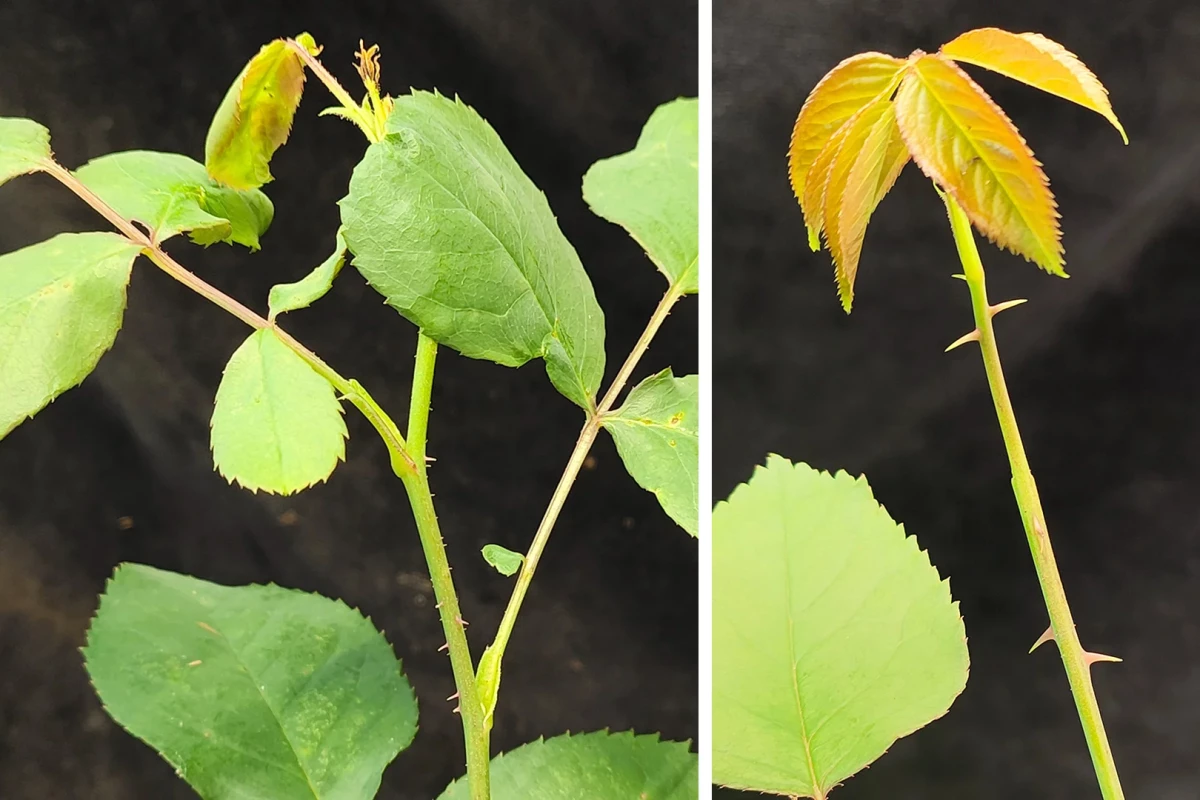Everybody loves roses, but we'd probably love them even more if they didn't have those sharp thorns. Well, scientists have found a way of growing thornless roses, and their findings could lead to easier-to-harvest crops.
First of all, yes, there are already some varieties of roses that are naturally thornless.
Such is not the case with most of them, however. What's more, crop plants such as blackberries and eggplants (along with some varieties of tomatoes, potatoes and rice) also sport herbivore-deterring thorns, scientifically classified as "prickles." This makes the harvesting of their fruit laborious and time-consuming.
With that problem in mind, scientists from Cold Spring Harbor Laboratory in New York and the Universitat Politècnica de València (UPV) in Spain started out by analyzing eggplants. Led by Cold Spring's Prof. Zachary Lippman and postdoc James Satterlee, the team discovered that certain mutations of a gene known as LOG (LOnely Guy) kept the plants from producing prickles.
LOG was already known to facilitate the synthesis of certain plant hormones. Wondering if it might also be responsible for prickle production in other plants, the scientists reached out to colleagues in countries such as France, Canada, Germany and the UK.
After reviewing previous studies and conducting new research, it was found that LOG was associated with prickle growth in approximately 20 species. It was apparently a case of convergent evolution, as the plants weren't all closely related to one another, and some of them evolved millions of years apart from others.
Utilizing the CRISPR gene-editing technique to silence the LOG gene, a scientist from INRAE (Institut National de la Recherche Agronomique) in France proceeded to drastically reduce prickle growth in roses. Researchers at Cornell University, meanwhile, eradicated prickles in an Australian fruit plant known as the desert raisin.
What's more, silencing of the gene didn't appear to have any detrimental effects on the plants.
"Eliminating prickles would facilitate the handling and harvesting of crops, reduce the risk of injury to agricultural workers and reduce post-harvest damage caused by prickles," says UPV's Prof. Jaime Prohens. "In addition, obtaining new varieties without prickles could lead to greater acceptance and consumption by consumers. All of these would be benefits."
A paper on the research was recently published in the journal Science.
Sources: Cold Spring Harbor Laboratory, Universitat Politècnica de València




